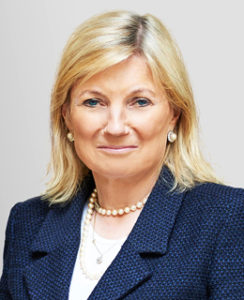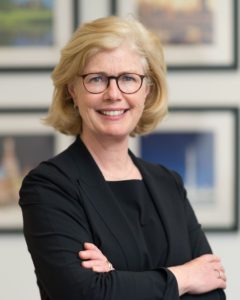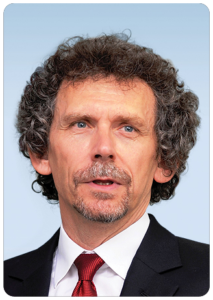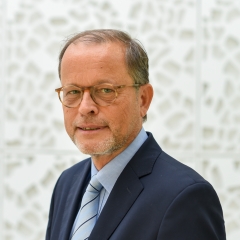On 15 May 2020 Russian Arbitration Center held the first online conference “Arbitration on the Eve of the New Era” that addressed the hottest issues concerning procedural issues of online arbitration and functioning of the arbitral institutions around the world during the current pandemic seizure.
In total, 735 participants from more than 60 countries have registered for the event.
The first session “Procedural Issues of Online Arbitration” focused on issues related to the conduct of remote arbitration proceedings. The speakers discussed if it is possible to comply with the basic principles of arbitration and to render an enforceable award in online proceedings. The speakers paid special attention to virtual hearings and their potential alternatives. Among speakers: Alexander Grebelsky (Managing Partner, Grebelsky&Partners), Roman Khodykin (Partner, Bryan Cave Leighton Paisner), Dame Elizabeth Gloster (International commercial arbitrator, One Essex Court), Andrey Panov (Counsel, “Allen&Overy”, Board Member, RAC), Kathleen Paisley (Counsel, Ambos Lawyers). The session was moderated by Mohamed Abdel Wahab (Founding Partner, Zulficar&Partners).
The speakers suggested many practical recommendations. Roman Khodykin (Partner, Bryan Cave Leighton Paisner) advised that all evidence and documents relevant to the case should be disclosed in a convenient form, such as hyperlinks in Excel or Magnum Opus in the course of preparation for the hearing. According to Kathleen Paisley (Counsel, Ambos Lawyers), while selecting platforms and software for remote arbitration, attention should be paid not only to convenience and functionality, but also to the issue of cybersecurity.
Dame Elizabeth Gloster (International Arbitrator, One Essex Court) spoke about the difficulties of online cross-examination: for example, when questioned online, it is quite difficult to read the body language; therefore, it becomes difficult for the arbitrator to decide whether the witness is telling the truth or lying.

Dame Elizabeth Gloster:
“In my opinion, there are a lot of cases that are not suitable for online proceeding, for example, criminal or matrimonial cases. The defendant in a serious crime must have the opportunity to meet face-to-face with the court, the prosecutor and the jury. As for arbitration disputes, it seems to me that disputes with a large amount of a claim will not be handled through virtual hearings”.
Andrey Panov (Counsel, “Allen&Overy”, Board Member, RAC) offered several options if oral hearings are not available: for example, documents-only arbitration, as well as splitting the arbitration into virtual and face-to-face proceedings, when the arbitrator can resolve some issues online and some of them can be held face-to-face.
During the second session “Arbitral Institutions: Challenges and Changes” the representatives of the world’s leading arbitration institutions spoke about the changing role and functioning of arbitration institutions in the new realities. The discussion was attended by Gary Born (President, SIAC), Kevin Nash (Deputy Registar & Centre Director, SIAC), Sarah Grimmer (Secretary-General, HKIAC), Miroslava Schierholz (Assistant Vice President of International Centre for Dispute Resolution, AAA), Jacomijn van Haersolte-van Hof (Director General, LCIA), Patricia Shaughnessy (Former Vice Chairperson, SCC). The session was moderated by Andrey Gorlenko (President of the Board, RAC, Partner, Ivanyan&Partners).
The panel speakers noted that in times of pandemic, parties and arbitrators still had a need for arbitration institutions, especially when there were difficulties and misunderstandings among the participants in the proceedings. Miroslava Schierholz (Assistant Vice President of International Centre for Dispute Resolution, AAA) pointed out that only arbitral institutes are able to provide a high level of security for electronic platforms, unlike ad hoc courts.

Jacomijn van Haersolte-van Hof:
“I think that the role of young arbitrators is increasing right now, as they are quite proficient in handling new technologies. They provide an opportunity for the arbitration as well as for the older generation of arbitrators. It is very difficult to say that nowadays only young people should be appointed as arbitrators. The arbitrator must have an experience in dispute resolution, but he must also develop his knowledge of new technologies rapidly”.

Gary Born:
“In my opinion, our clients soon will show more interest in young arbitrators – people who were already born with new technologies”.
The speakers also shared their opinion that they anticipate an increase in the number of arbitration disputes in the near future, especially in the most affected industries such as construction or oil and gas sector.
The conference concluded with a special interview with Klaus-Peter Berger (Chairholder Professor, University of Cologne) on “Force Majeure and Hardship in the Age of Corona” by Andrey Shirvindt (Associate Professor, MSU). The speakers discussed the institutions of force majeure and hardship, their understanding in various jurisdictions and correlation with the principle of pacta sunt servanda. The discussion also touched on the practical application of these institutions in relation to the pandemic.

Klaus-Peter Berger:
“We see that the so-called independence of the party is significantly reduced with the COVID-19 situation. Restricted concepts of force majeure and hardship are beginning to be perceived as solutions to almost any legal problem”.
The video is available on the website and YouTube channel of the Russian Arbitration Center.
Russian Arbitration Center would like to thank all moderators, speakers and conference participants!